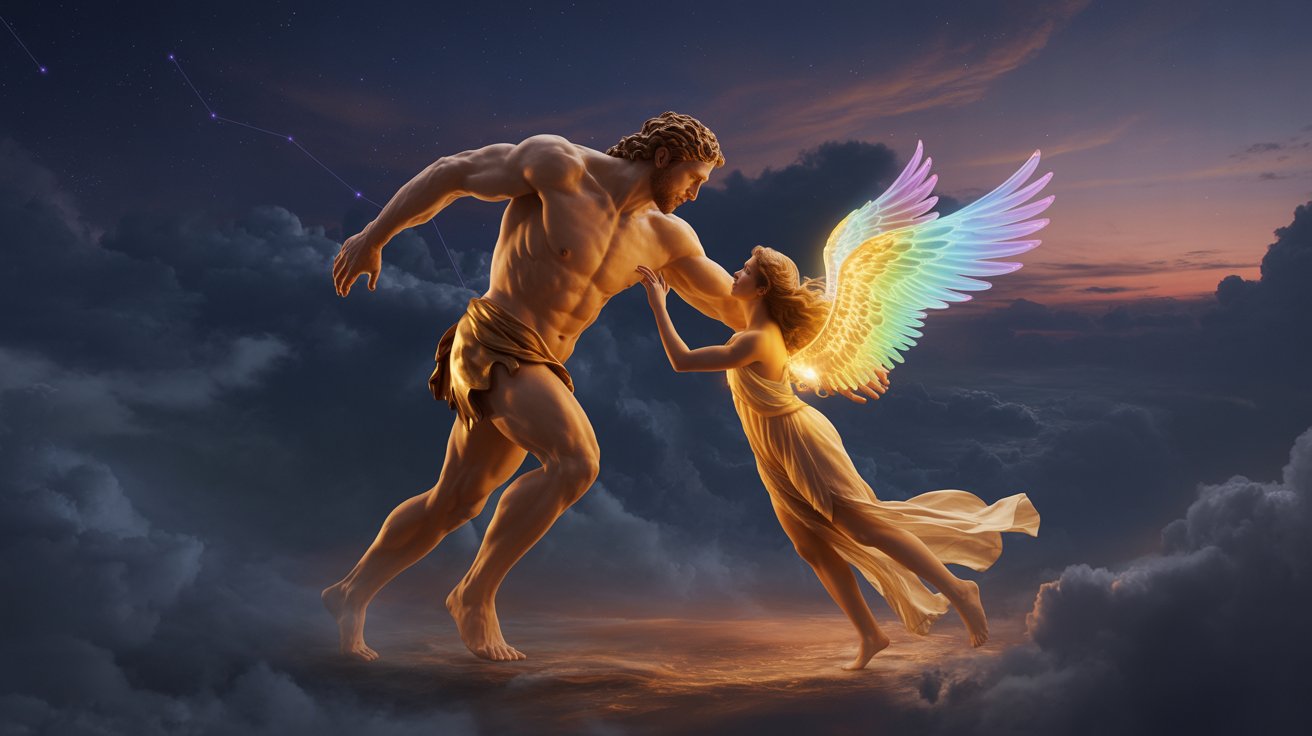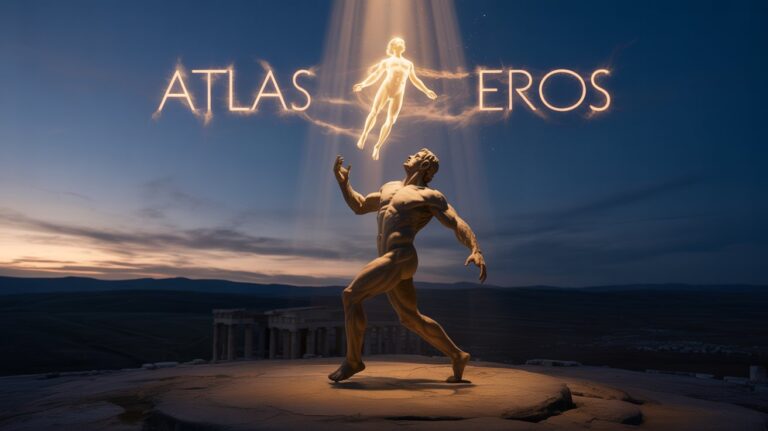In the intricate dance of myth and desire, few stories unfold with such unexpected pre-scene passion as that of Atlas Eros. The fusion of mythological symbolism with unanticipated moments of intimacy carves a unique narrative niche—a tale steeped in emotional tension, divine burden, and transcendent longing. As we delve deep into this theme, we uncover how Atlas, the titan condemned to bear the heavens, becomes an unlikely symbol of passion’s weight, and how Eros, the embodiment of love and desire, collides with this burden in a moment of searing intensity. The synergy between restraint and release creates a poetic tension that redefines prelude and climax alike.
The Myth of Atlas: A Titan’s Eternal Burden
Atlas, a titan of Greek mythology, is most famously known for being condemned by Zeus to hold up the sky for eternity. This divine punishment represents far more than physical strain—it becomes a metaphor for emotional weight, isolation, and the eternal endurance of one’s responsibilities. Yet within this solemn destiny lies the potential for vulnerability, the raw openness to passion’s intrusion, especially when it comes unbidden.
Atlas’s myth is not typically romantic, yet that makes the entrance of Eros all the more poignant. Here, we find the stage set not for a long courtship but for a pre-scene, an encounter brimming with unresolved tension, laden with symbolism, and charged with the impossible.
Eros: The Unseen Spark of Passion Before the Scene
Eros, often overshadowed by more dominant gods, is the quiet, powerful force that ignites desire before it manifests into full action. Eros represents the spark that precedes the fire—the heartbeat before the kiss, the thought before the touch. In many ways, Eros lives in the pre-scene, that charged moment when passion threatens to erupt but holds itself just short of release.
When paired with the somber, stoic Atlas, this creates a dichotomy that is both startling and poetic. Unexpected pre-scene passion thus becomes the emotional earthquake that shifts both characters from their archetypes—Atlas from his eternal stoicism, and Eros from mere instigator to a being consumed by his own flame.
Unexpected Pre-Scene Passion: Emotional Tension as Narrative Catalyst
This tension—the very definition of unexpected pre-scene passion—does not require consummation to be powerful. Rather, its energy lies in what is unspoken, what is almost but not yet. It’s a moment thick with longing, a narrative pause before destiny takes over. In Atlas Eros, this tension becomes mythically erotic, with each glance and breath carrying centuries of meaning.
Such moments are the lifeblood of great storytelling, where the readers or viewers lean forward, breath held, waiting for the inevitable collision. And yet, in that waiting, they find the true art of the scene—not in what happens, but in the infinite possibilities that exist in the not-yet.
Symbolism of Burden and Desire in Atlas Eros
The mythological symbolism here is rich. Atlas’s burden becomes a metaphor for emotional repression, for the crushing weight of duty that leaves no room for indulgence. Eros, in contrast, is the temptation of vulnerability, the call to feel, to desire, to momentarily forget the heavens on one’s shoulders.
Together, they create a narrative universe where passion does not resolve, but ignites—where the act of almost touching, almost confessing, becomes more powerful than any consummation. The scene becomes sacred, sealed in timeless suspension.
Narrative Techniques that Enhance the Pre-Scene Passion
Writers and creators who invoke Atlas Eros often employ techniques that heighten this emotional charge:
-
Extended metaphor: Using Atlas’s physical burden as a symbol of emotional suppression.
-
Minimal dialogue: Letting silences speak volumes, allowing body language and proximity to do the work.
-
Slow pacing: Drawing out the moment to increase intensity, every second stretched to its limit.
-
Sensory detail: Describing the tension in air, the feel of gazes, the slight intake of breath—every detail accentuated.
These techniques ensure that the unexpected pre-scene passion doesn’t just serve as a prelude—it becomes the main event, etched into the audience’s memory long after the scene passes.

Why Atlas and Eros Resonate in Modern Narratives
In modern literature and media, we often find echoes of Atlas and Eros—characters caught between obligation and passion, restraint and release. Think of the emotionally unavailable hero who finally lets his guard slip, or the figure of temptation who refuses to be just a plot device.
The dynamic has become a powerful archetype, resonating because it touches a deeply human truth: that we all carry something heavy, and we all long for the touch that makes us forget it, even if just for a moment.
Frequently Asked Questions
What is meant by “unexpected pre-scene passion”?
It refers to a sudden, emotionally charged moment of romantic or erotic tension that arises before any actual scene of intimacy, often catching both characters and audiences off guard.
Who are Atlas and Eros in mythology?
Atlas is a Titan condemned to hold up the sky, symbolizing strength and burden. Eros is the god of love and desire, representing spontaneity, emotion, and sensuality.
Why is the Atlas Eros dynamic powerful?
Because it combines extreme restraint with overwhelming passion, creating a tension that resonates deeply on both symbolic and emotional levels.
How can writers use this theme effectively?
By focusing on emotional nuance, metaphor, and pacing, creators can evoke powerful feelings without explicit action, making the pre-scene passion more impactful than the resolution.
Is this theme relevant to modern storytelling?
Absolutely. The contrast between duty and desire, strength and vulnerability, is timeless and continues to appear in contemporary narratives across genres.
Conclusion: The Beauty of the Almost
The story of Atlas and Eros is a testament to the potency of the almost. In their brief, unfulfilled exchange, lies a universe of meaning. The unexpected pre-scene passion does not need to lead to more—it is enough to know it existed, suspended between breath and touch, like a secret the cosmos dared not tell. In that silence, there is thunder. In that pause, there is poetry.
